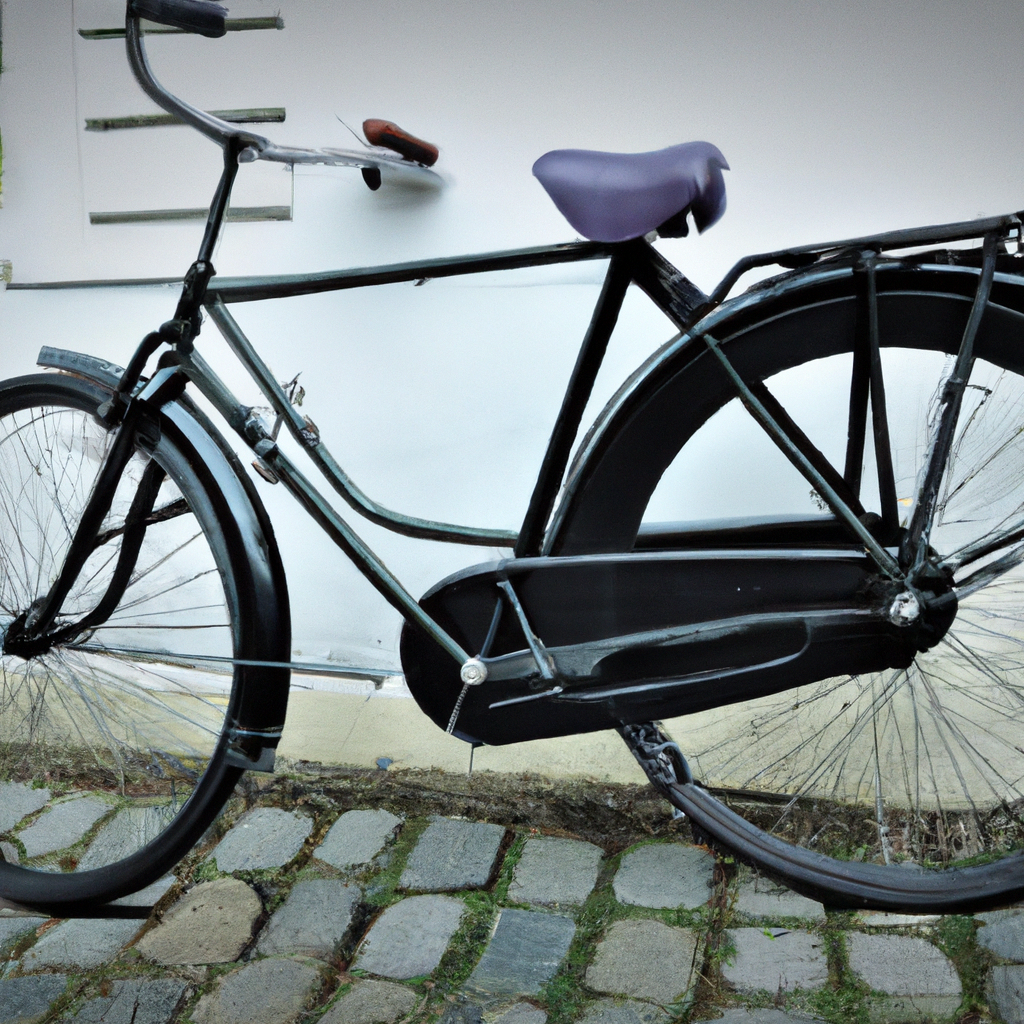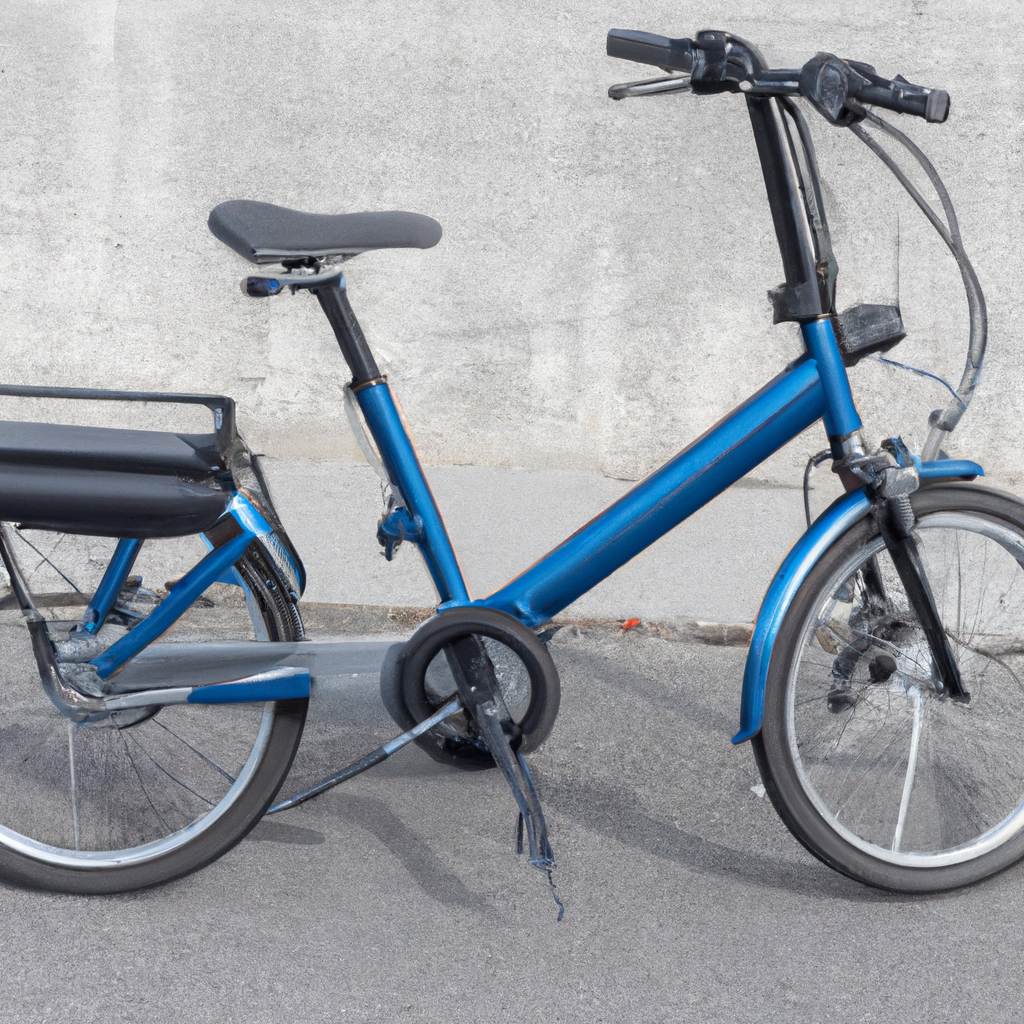Electric City Bike: The Ideal Urban Commuting Option

Introduction
Electric City Bike: Imagine skipping the congested traffic, avoiding the hassle of finding parking spaces, and enjoying a breezy ride through the city streets. Electric city bikes offer a practical and eco-friendly solution for urban commuters seeking efficient, cost-effective, and sustainable transportation options. In this article, we will explore why electric city bikes have become increasingly popular among urban dwellers and discuss the many benefits they offer.
Table Of Contents
The Rise of Urban Commuting
In recent years, the urban landscape has witnessed a significant rise in the number of commuters. With bustling city centers and limited parking availability, traditional modes of transportation like cars and public transportation have become less attractive. Urban dwellers seek alternatives that are convenient, flexible, and conducive to a healthier and more sustainable lifestyle.
The Electric Revolution
Electric city bikes have emerged as a game-changer in urban commuting. These bikes harness the power of electricity to amplify pedalling efforts and provide a smooth, effortless ride. With electric city bikes, riders can travel longer distances, tackle hilly terrains with ease, and arrive at their destinations without breaking a sweat. Equipped with powerful batteries, these bikes offer a perfect balance between human power and electric assistance.
1. Convenience and Flexibility
One of the primary reasons people opt for electric city bikes is the convenience they offer. These bikes are lightweight and agile, allowing riders to navigate through congested urban streets effortlessly. Furthermore, electric city bikes often come with built-in storage options, such as racks or baskets, for carrying groceries, backpacks, or other essentials. Commuting with an electric city bike ensures you can zip through traffic, bypass crowded public transportation, and reach your destination faster.
2. Cost-effectiveness
Compared to owning a car or relying on public transportation, electric city bikes are a much more cost-effective option. The initial investment in an electric bike may seem higher, but it pays off in the long run. By reducing fuel and parking expenses, riders can save a considerable amount of money over time. Additionally, electric city bikes require minimal maintenance, reducing repair costs and the need for insurance typically associated with owning a car.
3. A Greener Way to Commute
As cities strive to combat pollution and reduce their carbon footprint, electric city bikes offer a greener alternative to traditional transportation methods. By choosing electric bikes over cars or motorcycles, urban commuters contribute to cleaner air and a healthier environment. Electric city bikes produce zero emissions, helping to combat climate change and promote sustainability. Choosing this mode of transport demonstrates a commitment to a greener future for urban areas.
4. Health and Fitness Benefits
Commuting by electric city bike not only benefits the environment but also provides numerous health and fitness advantages. While electric assistance is available, riders can still choose the level of physical exertion they desire. Commuting on an electric bike promotes active transportation, increasing cardiovascular fitness and muscle toning. Studies have shown that regular cycling can significantly boost mental well-being, reduce stress levels, and improve overall mood.
5. Enhancing Work-Life Balance
Electric city bikes not only revolutionize the commute experience; they also contribute to a better work-life balance. With an electric bike, commuting becomes an enjoyable and efficient experience. Arriving at work feeling refreshed and energized, without the hassle of traffic jams or delayed public transportation, sets a positive tone for the day. Additionally, electric city bikes provide an opportunity for exercise during travel, eliminating the need for separate workout routines.
Conclusion
Electric city bikes have quickly become the go-to urban commuting option, offering numerous benefits for riders and the environment alike. Their convenience, cost-effectiveness, environmental impact, and health benefits make them a compelling choice for adapting to the demands of urban living. As cities continue to evolve, embracing alternatives like electric city bikes can pave the way towards a sustainable and vibrant future. So, why not hop on an electric city bike and experience the freedom of an effortless, eco-friendly journey through the urban landscape?
Advantages of Electric City Bikes for Urban Commuting |
|---|
| Convenience and flexibility |
| Cost-effectiveness |
| Environmental sustainability |
| Health and fitness benefits |
| Enhanced work-life balance |
Frequently Asked Questions about Electric City Bikes
1. What is an electric city bike?
An electric city bike, also known as an e-city bike or e-bike, is a bicycle that is equipped with an electric motor to assist with pedalling. It combines the traditional functionality of a bicycle with the added convenience and ease of an electric motor.
2. How does an electric city bike work?
Electric city bikes operate by assisting the rider’s pedaling efforts with the help of a motor. A battery powers the motor, which kicks in as soon as the rider starts pedaling. The motor provides additional torque, making it easier to navigate through urban terrain or climb hills. The level of assistance can usually be adjusted to suit different riding preferences.
3. What are the advantages of using an electric city bike?
There are several advantages to using an electric city bike:
- Easy and convenient transportation option for urban commuting
- Assisted pedalling makes uphill climbs and longer distances more manageable
- Reduces dependency on cars and helps decrease carbon emissions
- Provides an alternative to public transportation, offering more flexibility in travel
- Allows riders to arrive at their destination without feeling exhausted or sweaty
4. How fast can an electric city bike go?
The speed of an electric city bike varies depending on various factors, including the motor power, the weight of the rider, and the terrain. Generally, electric city bikes can reach speeds of up to 20-28 mph (32-45 km/h). However, it’s important to note that there are legal restrictions on maximum speeds for e-bikes in some regions.
5. How far can I ride on a single charge?
The range of an electric city bike depends on the battery capacity and the level of assistance used. On average, most e-city bikes can travel between 30 and 60 miles (48-96 km) on a single charge. However, it’s essential to consider factors such as terrain, rider weight, riding style, and weather conditions, as these can affect the range.
6. Are electric city bikes suitable for all riders?
Electric city bikes are designed to be suitable for riders of different ages and fitness levels. They provide an excellent option for people who want to enjoy cycling with a little extra assistance. However, it’s important to check the weight limitations and size restrictions of the specific electric city bike you intend to purchase.
7. Do I need a license or registration to ride an electric city bike?
The regulations regarding licenses and registration for electric city bikes may vary depending on your country or region. In many places, e-bikes that meet certain specifications (e.g., maximum speed and power) are classified as bicycles and do not require a license or registration. However, it’s always a good idea to check local laws and regulations to ensure compliance.
8. Are electric city bikes expensive to maintain?
Compared to cars or motorcycles, electric city bikes are generally more affordable to maintain. The cost of maintenance primarily involves periodic battery replacements, brake adjustments, and regular servicing. It’s recommended to follow the manufacturer’s guidelines and have your e-bike serviced by a qualified technician for optimal performance.
9. Can I use an electric city bike in the rain?
Most electric city bikes are designed to withstand light rain or splashes. However, heavy downpours or continuous exposure to water can damage the electrical components and affect the bike’s performance. It’s advisable to consult the manufacturer’s guidelines regarding water resistance and take necessary precautions while riding in wet conditions.
10. Are electric city bikes theft-prone?
Electric city bikes can be a target for theft, just like any valuable possession. It’s crucial to take preventive measures such as using sturdy locks, parking in well-lit areas, and considering additional security options like GPS tracking devices or insurance coverage. Being vigilant and practicing good bike security habits can significantly reduce the risk of theft.
Remember to always refer to the specific manufacturer’s instructions and guidelines for your electric city bike to ensure proper and safe usage.
